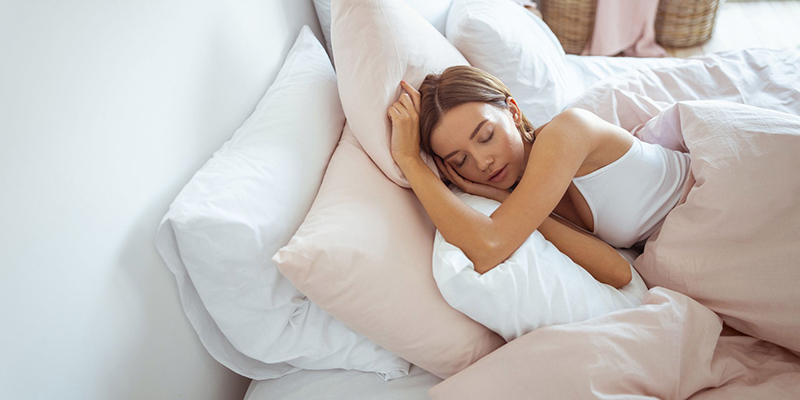6 Treatments and Tips You Can Use for Migraine Relief
Migraines are not just regular headaches but severe conditions that affect the population in many ways. They're a real pain; speaking, this is right on the head.
These nasty attacks affect millions of people who wake up with severe headaches, nausea, and light and noise sensitivity that confines them to bed.

Migraine interferes with your entire schedule throughout the day. The job gets done, meetings are missed, and friendships and partnerships are tested. It may lead to stress as you begin to anticipate the next attack with many things on your plate.
But don't lose hope! This post is here to help. In this article, we'll share six valuable tips to help combat your migraine wars.
These strategies can change your life and prevent migraines from disrupting it. Let's get started!
The Real Cost of Migraines: More Than Just a Headache
Migraines don't just hurt your head; they hurt your whole life. Work becomes a struggle when you're fighting pain and nausea. Family time? Forget it. You're too busy hiding in a dark room.
But here's the good news: managing migraines can turn things around. Imagine tackling your to-do list without fear of an attack. Picture enjoying dinner with friends instead of bailing at the last minute.
Dealing with migraines head-on (pun intended) isn't just about pain relief. It's about reclaiming your life. When you're not constantly worried about the next migraine, your stress levels drop, you sleep better, and your mood improves.
Don't wait to address your migraines. The sooner you take action, the sooner you can start feeling like yourself again. Your body and mind will thank you for it.
Practical Strategies to Combat and Prevent Migraines
Now that we understand how migraines impact our lives let's explore practical ways to fight back. These six strategies can help you manage your migraines and prevent them from starting.
Everyone's different, so try a few before finding what works best.
1. Medication Options
When it comes to migraine meds, you've got choices. Some you can grab at the store, others need a doctor's, okay? The key is knowing which to use and when.
Preventive meds are like a shield, taken regularly to stop migraines before they start. Acute treatments are your sword, fighting the pain once it's begun.
Here's a quick list of joint migraine fighters:
- Triptans: These guys narrow blood vessels to stop pain signals
- NSAIDs: Good old anti-inflammatories like ibuprofen
- Ergotamines: An older class of drugs that can pack a punch
- CGRP antagonists: The new kids on the block, blocking pain-causing proteins
2. Stress Management Techniques
Stress and migraines go together like peanut butter and jelly, but they could be more tasty. Learning to chill out can significantly affect how often those head-splitters hit.
There's no one-size-fits-all way to beat stress. Some folks swear by meditation, others by yoga or deep breathing. The key is finding what works for you and sticking with it.
Here's a simple relaxation exercise to get you started:
- Find a quiet space
- Close your eyes and focus on your breathing
- Progressively relax each muscle group
- Visualize a calming scene
3. Dietary Changes and Trigger Avoidance
What you eat can make or break your migraine situation. Some foods are like kryptonite to migraine sufferers. Others might help keep the pain at bay.
Keeping a food diary is like being a detective. It helps you spot the culprits that might be setting off your migraines.
Here's a quick comparison of migraine-friendly foods and potential triggers:
Migraine-Friendly:
- Fresh fruits
- Lean proteins
- Whole grains
- Water
Potential Triggers:
- Aged cheeses
- Processed meats
- Artificial sweeteners
- Alcohol
When planning meals, think fresh and straightforward. Eat plenty of fruits, veggies, and whole grains, and avoid processed foods and known triggers.
4. Sleep Hygiene Improvements
Insufficient sleep and migraines are best buddies, but that's not good. Getting your sleep game on point can help keep those head-pounders away.

Sleep hygiene isn't about soap and water. It's about creating habits that help you catch those Z's like a pro.
Try these sleep hygiene tips:
- Stick to a consistent sleep schedule
- Create a relaxing bedtime routine
- Avoid screens before bed
- Optimize your sleep environment
5. Alternative Therapies
Sometimes, thinking outside the pill bottle can lead to migraine relief. Alternative treatments like acupuncture, massage, or herbs have helped some folks.
These methods can offer benefits, but they're not magic bullets. Always chat with your doctor before trying something new.
Take Sarah, for example. She tried acupuncture after years of failed treatments. "It wasn't an instant fix," she says, "but after a few sessions, I noticed my migraines were less frequent and intense."
6. Lifestyle Modifications
Small changes in daily life can lead to significant migraine relief. Regular exercise, for instance, can be a powerful migraine buster. Just don't overdo it, though. That can backfire.
Staying hydrated is crucial. Your brain needs water to function correctly. Skipping meals can also trigger migraines, so try to eat at regular times.
Caffeine's a tricky one. For some, it helps stop migraines. For others, it's a trigger. Could you pay attention to how it affects you?
Here's a sample day that includes migraine-prevention strategies:
- Wake up at the same time daily
- Eat a balanced breakfast
- Take a short walk
- Stay hydrated throughout the day
- Practice a stress-relief technique
- Stick to a consistent bedtime
Remember, managing migraines is a journey. Be patient with yourself as you try these strategies.
Take Control of Your Life: Start Your Migraine-Free Journey Today
Don't let migraines rule your world anymore. These six strategies aren't just tips. They're your ticket to a better life. Imagine waking up without fear of pain, enjoying time with loved ones, and crushing your goals at work.
People who've tried these methods report fewer migraines and more good days. Why miss out on that chance? Every day you wait is another day lost to pain.
Start small. Pick one strategy and give it a shot. Your future self will thank you. Remember, you're not alone in this fight. Take that first step towards a migraine-free life today.
Frequently Asked Questions
Q: How can I tell if I have a migraine or a regular headache?
Ans: Migraines often come with nausea, sensitivity to light and sound, and throbbing pain on one side of the head. Regular headaches are usually less severe and don't have these extra symptoms.
Q: Are there any natural remedies that can help with migraines?
Ans: Yes, some natural remedies can help. Try peppermint or lavender essential oils, ginger tea, or a cold compress on your forehead. Staying hydrated and practising relaxation techniques can also provide relief.
Q: How long does a typical migraine last?
Ans: If left untreated, migraines usually last between 4 and 72 hours. However, the duration can vary from person to person. Some people may experience symptoms for several days.
Q: Can hormonal changes trigger migraines?
Ans: Absolutely. Many women experience migraines linked to their menstrual cycle, pregnancy, or menopause. Hormonal fluctuations, such as significant drops in estrogen, can trigger migraines in some people.